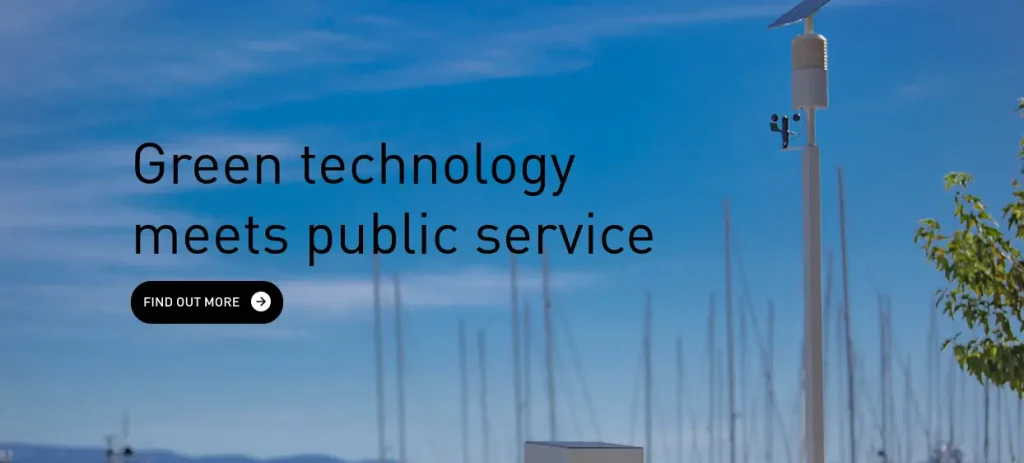As Poslovni Dnevnik/Josipa Ban writes, after three years of development, the Croatian company Include has finally launched brand new smart solutions for cities and municipalities on the market. This is how the installation of the redesigned version of the wildly popular Steora smart bench and two completely new products – Aerys – an air quality monitoring station and Terra – a waste container, began.
“For a long time now, the long-term goal has been to expand our Smart City sales portfolio with solutions that solve some of the key challenges that today’s communities face – public property management, micromobility, air quality and waste management,” explained Ivan Mrvos, the founder and CEO of the Croatian company Include.
Last year, Include’s redesigned smart benches were put on the market, which are now equipped with micromobility features and can recognise and charge all types of e-mobiles and e-bikes.
Aerys, Include’s first air quality monitoring station, was installed back in March, and to date more than 20 of them have been installed across Croatia, Montenegro and Italy.
“At the beginning of next year, we expect orders from other markets where we’re already present with our Steora benches,” said Mrvos.
This month, the first five Terra waste containers with compression systems installed, and which can hold five times more waste than a standard container of the same size, were installed. In addition, operators can remotely monitor its filling levels and plan rubbish collection routes accordingly. As early as next month, as Mrvos announces, an additional four such containers should be installed. In addition, they developed the Solos software solution, an IoT platform that connects and facilitates the management of smart solutions.
As far as expansion is concerned, the market is the whole world, but the primary focus of the Croatian company Include will be right here in Europe, that is, the countries where they generally achieve the best results with their benches – Italy and Germany.
“We’re talking about very large markets where existing competitors generate tens of millions of euros in revenue annually. Now we have a big job ahead of us to successfully promote and place our new solutions on different markets,” stated the director of the company, which has received a massive 3.4 million euros in investments since its foundation back in 2015. The last investment, one from the beginning of this year which amounted to 400 thousand euros, helped expand Include’s already enviable portfolio, which was anything but a simple task.
This company, which generates 90 percent of its revenue on foreign markets, explains that the biggest challenge was coronavirus restrictions and the lack of chips on the market.
“The chips with which we initially designed our modules and products became completely unavailable and we had to redesign certain components almost from scratch with other chips that were more available, and even then it was questionable whether these new chips would be available on the market in the long term. All this put an additional financial burden on us because we had to make additional unplanned supplies, and the supply chain itself of almost all the materials needed for work became chaotic and unavailable for work at one point,” Mrvos recalled.
Fortunately, that situation is now firmly behind them.
As far as financing is concerned, Mrvos stated that they are actively working on new opportunities and that they will probably have some news on this matter in the next year. In the years to come, their vision, Mrvos pointed out, is to enable the implementation of “smartness” across all small towns and municipalities.
“We saw that smaller cities and municipalities very often don’t participate in Smart City projects because integrators often focus on large cities as potentially large clients. In addition, cloud platforms through which such products are controlled are often adapted to larger environments and require smaller ones to have infrastructure in the form of employees or IT equipment with which to manage these products.
The long-term vision we have is that all cities, regardless of their size and infrastructure, can participate as Smart Cities and that through our platform they can control their smart products without significant investment in IT infrastructure or new employment,” they explained from the Croatian company Include.
For more, make sure to check out our dedicated business section.









